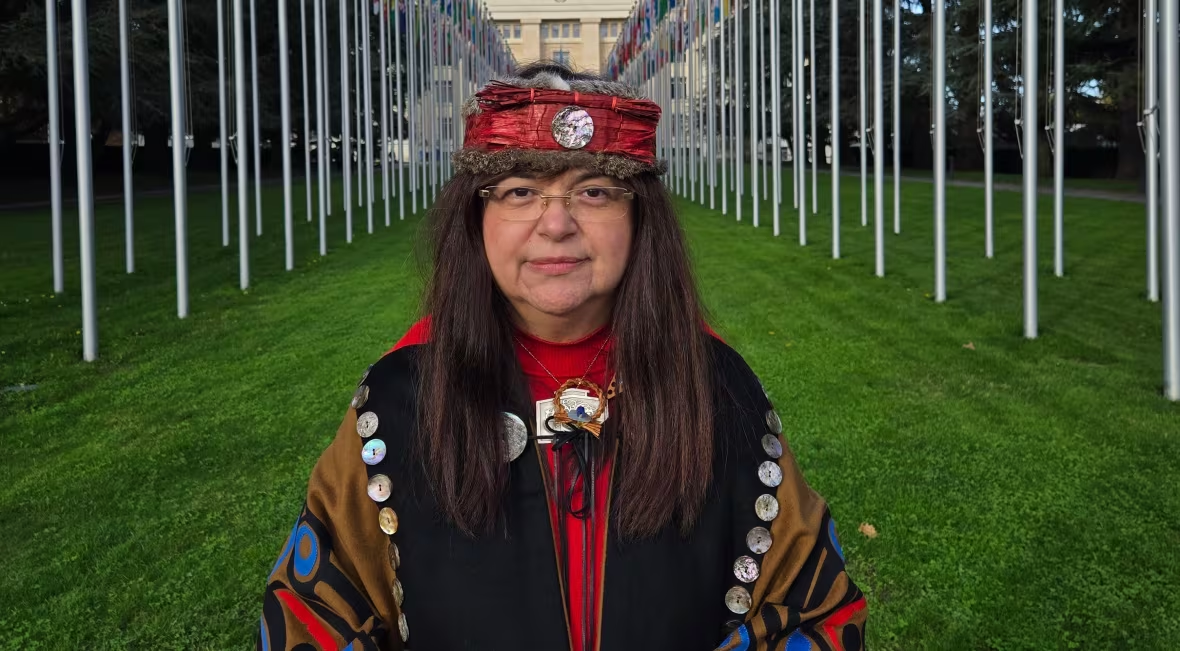Heiltsuk Nation passes written constitution with 67% of votes
Constitution will clarify decision-making powers previously left to courts, nation says

The Heiltsuk Nation has approved the adoption of a written constitution for the First Nation on British Columbia's central coast.
The nation says 67 per cent of the 725 people who voted on the referendum were in favour of the constitution.
It says voting this month came after about two decades of development and consultation.
That included six months of engagement with more than 2,000 Heiltsuk members in Bella Bella, Nanaimo and Vancouver.
Elected Chief Marilyn Slett says she felt "pride and happiness" upon hearing the result, calling the written constitution a "reclamation" of Heiltsuk ways.
She says the document, which will be ratified in May, lays out a legal framework for self-governance and will help guide others who want to work with the nation.
"It's a new day for our Heiltsuk people," she said in an interview Friday. "It's us charting our course forward based on our laws, our values and our beliefs."

The nation says the constitution will help provide clarity for its own members and those it chooses to do business with, clearing up questions around decision-making in Heiltsuk territory that have previously been left to the courts.
Hereditary Chief Elroy White says the constitution "reflects the deep history of our people and the ancient governance structure that existed prior to colonization."
"It's been a long time for us," he said in an interview.
"It's so important to have something written for the membership to be proud of and understand that this is accountable and transparent, and this means that our voice [will be] at tables."
White initially said the First Nation's new laws "won't take over any other laws," but the Nation later clarified that "questions about paramountcy will need to be worked out."
The nation says the constitution has also underwent a legal review, and the referendum was conducted by an independent electoral officer.
Slett says the next steps to implement the constitution will be "developing core laws" for the nation, which will cover issues such as land management and language.
"We'll move to developing those laws and having our celebration and ratification feast on May 30, [which] will be a big step for our community [to] move forward with the implementation," she said.

However, several neighbouring nations have expressed concern about the process.
In an open letter, the Nuxalk, Kitasoo Xai'xais and Wuikinuxv nations took issue with a territorial map attached as an appendix item to the Heiltsuk's constitutional documents, saying it overlaps with their territories.
"Prior to finalizing your constitution, we encourage you to work with us to resolve our territorial matters," the letter reads.
The constitution does not grant the Heiltsuk formal governance powers over land beyond what already exists, but the other nations say the document has "significant potential repercussions [which] could adversely affect our Nations' rights now and in the future."
In a email, Slett told CBC News she hoped to speak with the other nations about their concerns soon.
"These are Nation-to-Nation issues, ones that are best addressed in ancient processes and guided by our Indigenous protocols and practices," she said. "We have formally responded with an invitation to our neighbors and welcome the opportunity to meet with them."
With files from CBC News
